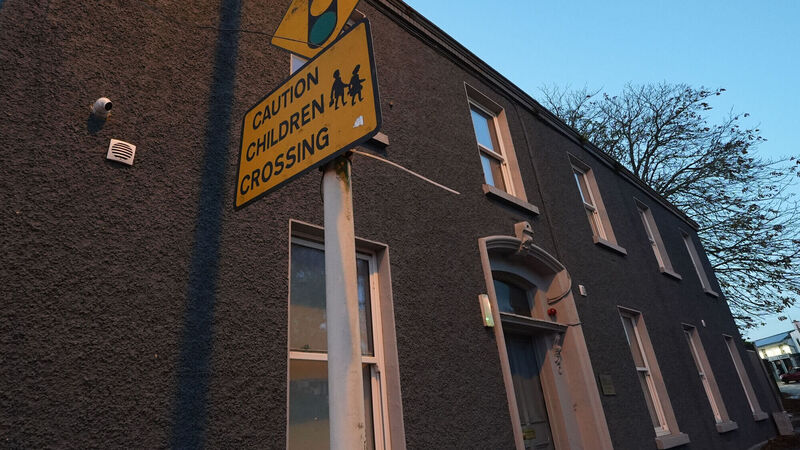Anti-migrant rally held in Drogheda days before near fatal attack on Ipas centre

The International Protection Accommodation Services (Ipas) centre in Drogheda, Co Louth, after the building was attacked. Picture: PA
An angry anti-migrant rally was held in Drogheda in the days before the near fatal arson attack on families in a building housing asylum seekers in the town on Halloween night.
One speaker at the protest on Saturday, October 25, previously made online comments about fires at international protection accommodation service (Ipas) centres, and reportedly wrote "burn baby burn" online about a hotel being used to house asylum seekers.










